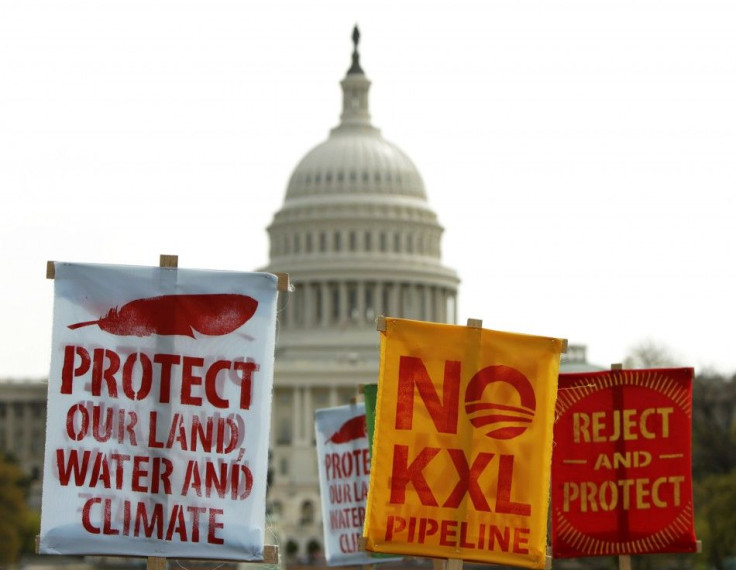US-Canada Keystone XL Pipeline Legislation Risks Rejection From White House

No less than the President of the United States Barack Obama has vowed to veto down the highly controversial Keystone XL oil pipeline legislation, instantly dousing hopes of a possible start of construction this year and further delaying what could be Canadian Prime Minister Stephen Harper's greatest energy legacy.
Republicans had officially taken control on Tuesday both chambers of the U.S. Congress. Their first order of business was to lay the groundwork towards the approval of the Keystone XL oil pipeline project. Hearings have been set immediately beginning Wednesday.
But immediately on Tuesday, the White House loudly let itself be heard by the Republican-controlled Congress that the highest government official on land will not pore over their legislation. "If this bill passes this Congress, the president wouldn't sign it," Josh Earnest, the White House press secretary, flatly said at his daily press conference. The bill, which has sufficient sponsors to pass from both chambers, seeks to sidestep a federal agency review. This effectively means the decision over the pipeline would be taken out of Mr Obama's hands, which he doesn't like.
Senator Joe Manchin, a West Virginia Democrat and a bill co-sponsor, said his office had reached out to the White House "to look at ways that we can work together to find out if there are some areas that they might, on content, object to that we can work with." He has yet to receive a direct reply, but remained hopeful Mr Obama will change minds and eventually not veto the bill. Earnest said it can happen, if the introduced measure is "different" from the one introduced in the last Congress that was opposed by Mr Obama.
Mr Obama has regularly expressed doubts about the value of Keystone for Americans following a State Department assessment of the project. The U.S. President is strongly opposed to the project because of the potential effects and hazards to climate change of the pipeline on oilsands expansion. To be developed by Calgary-based TransCanada Corp, the proposed $8-billion project has been in the vetting process in the U.S. for over six years.
"We are well over the six-year mark reviewing the final phase of Keystone with seemingly no end in sight. The bar continues to move again and again," Russ Girling, the company's chief executive, said in a statement. "It's time to make a decision."
Earnest cautioned Republicans and supporters of the Keystone XL oil pipeline project to wait for the decision of the Nebraska supreme court. "This is an important principle at stake here," Earnest said, stressing lawmakers must adhere to the protocols for approving the pipeline and not try to circumvent it. He said the court case and evaluation process have to be completed first and foremost before Mr Obama, if ever, approves the pipeline project.





















